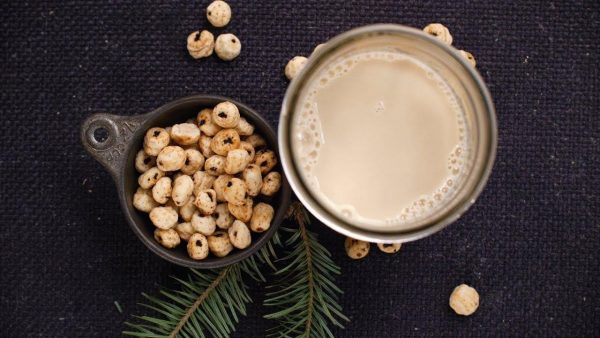The mere act of cooking is rooted in tradition and tells about our history and personal identity. Through the generations, recipes are handed down by women of the family. The recipes, through the ingredients and anecdotes that accompany them, tell stories of history and transmit values.
Our food history segment takes us to Northern Nigeria, the home of the Hausa-Fulani ethnic group. They are predominantly Muslims. They have unique cultural practices most of which are founded on tenets of Islam. The Hausa-Fulani are principally farmers and cattle rearers. They have a rich food culture. Most of their foods are derived from grains like rice, millet, sorghum, and maize. These are grinded into flour to make tuwo, the popular Hausa food that can be eaten with soups like miyan kuka. Grains can also be used in making the nutritious drink, kunu.
Kunu is a popular drink that originates from Northern Nigeria. It can be prepared with millet, rice, groundnuts, maize or sorghum. The principal ingredients used in the production of the drink determine the type of kunu the producer is making. If the drink is prepared with rice and groundnut milk, it is called kunu gyada. If the drink is made with millet and potatoes, it is called kunu zaki. If the drink is made from tiger nuts, it is called kunu aya. The choice of ingredients and invariably, the type of drink can be dependent on the producer’s interest, availability of raw material and cost.
Kunu is enjoyed in Nigeria today by people of different ethnic groups. It is a non-alcoholic beverage and highly nutritious too. The consumption of this beverage cuts across all age groups and social status. The peak period of consumption is usually from February to June. The weather is usually hot at this time so chilled drinks are a welcome relief from the hot weather.
It has a number of health benefits. It is believed to aid digestion and cure gastro-intestinal irritation. It allegedly serves as a muscle relaxant. It is also believed to stimulate breast milk production in lactating mothers. The water content in kunu is also high; this provides necessary hydration to the body.
Featured Image Source: Oasdom.com
References
publichealth.com.ng
Pulse.ng
Gaffa Terna, I. A. Jideani and I. Nkama “Nutritional Composition of Different Types of Kunu Produced in Bauchi and Gombe States Of Nigeria,” International Journal of Food Properties, Vol. 5, Issue 2, 2002.


